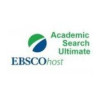Research Article
Aim & Scope
UMDE Journal of Religious Inquiries (e-ISSN: 2667-4939), is a peer-reviewed international journal published twice a year as July and December. It aims to publish scientific research such as research articles, translations, papers and reviews (for books, articles, theses, projects, symposium and conferences) on religious studies and to share these studies with public. UMDE Journal of Religious Inquiries provides articles written by qualified specialists in the area of Religious and Islamic Studies (Scope: Arts and Humanities/Religion/Islamic Studies & Scope: Social and Behavioral Sciences/ Theology and Ethics).
Articles are subjected to double-blind peer review by at least two reviewers before being accepted for publication in the UMDE Journal of Religious Inquiries. Furthermore, using a special program, it is proven that the articles have never been published before and do not include plagiarism.
Subject Category
Social and Human Sciences, Religion/Islamic Studies
Scientific Field
Basic Islamic Sciences / Tafsīr, Islamic Law, Hadith, Kalam, History of Islamic Sects, Sufism, Qur’anic Recitation, Arabic Language and Rhetoric.
Islamic History and Arts / History of Islam, Turkish-Islamic Literature and Islamic Arts, Turkish Religious Music.
Philosophy and Religious Studies / Islamic Philosophy, Philosophy of Religion, Sociology of Religion, Psychology of Religion, Religious Education, History of Religions.
Keywords
Islam, Religion, Qur'an, Tafsīr, Fiqh, Hadith, Kalam, Islamic Sects, Qur’anic Recitation, Arabic Language and Rhetoric, Sufism, Turkish -Islamic Culture, Islamic History, Islamic Literature, Turkish Religious Music, Turkish -Islamic Arts, Islamic Philosophy, Sociology of Religion, Philosophy of Religion, Psychology of Religion, Religious Education, History of Religions.
Author Guidelines
1) Umde Journal of Religious Inquiries publishes academic studies carried out in the fields of Social Sciences and Humanities, primarily religion.
2) Only studies prepared in Turkish, English and Arabic languages are accepted to the journal.
3) Submitted articles must be in accordance with the purpose and scope of the journal.
4) Papers that are original, unpublished and not in the process of evaluation in any another journal, whose content and submission have been approved by each author, are accepted for evaluation.
5) The copyrights and publication rights of the author(s) are reserved.
6) In the type of book reviews, only the papers written by experts with a doctorate degree are accepted.
7) Papers should be prepared in accordance with the writing rules of the journal. In addition, articles must be uploaded to the system by writing in accordance the Umde Article Template.
8) Papers should be submitted electronically to the journal website from the "Submit Article" tab.
9) All documents and files must be submitted in Word format (.doc or .docx).
10) Papers that do not follow the ISNAD Citation System are returned to the author for correction.
11) Papers exceeding the 10,000-word limit are returned to the author in order to reduce the word count.
12) Papers should contain an abstract of 150-250 words and 5-8 keywords to facilitate electronic search.
13) All expenses of the journal are covered by the Publisher. The publication of articles and the execution of article processes in the journal are free of charge. No processing fee or submission fee is charged for articles submitted to the journal or accepted for publication.
14) After the paper is sent to the Journal for publication, the names of any of the authors cannot be deleted from the list of authors without the written consent of the authors, a new name cannot be added as an author, and the order of authors cannot be changed.
DECISION OF THE COMMITTEE OF ETHICS
1.It is mandatory for studies/articles that need to collect data from individuals using scales, questionnaires, interviews and other data collection tools.
2.The author must receive an approval from the Ethics Committee of the university to which he/she is affiliated.
3.Committee approval should be indicated on the first page of the paper with the name of the board, date and number.
4.In the method part of the paper, the start and end dates of data collection should be indicated.
5.The certificate of approval should be attached to DergiPark as an additional file.
6.At the end of the paper, before the Bibliography, the authors’ contribution rate statement, support and acknowledgment statements, and if any, conflict statement should be included.
Ethical Statement
It is declared that scientific and ethical principles have been followed while carrying out and writing this study and that all the sources used have been properly cited.
Funding
The authors acknowledge that they received no external funding in support of this research.
Author Contributions
Conceiving the Study: HA (%55), MÖ (%45)
Data Collection: HA (%70), MÖ (%30)
Data Analysis: HA (%60), MÖ (%40)
Writing up: HA (%80), MÖ (%20)
Submis-sion and Revision: GK (%90), AA (%10)
Competing Interests
The authors declare that they have no competing interests.
You can download the declaration table in WORD format: https://dergipark.org.tr/tr/download/journal-file/23413
The name of the author and the institution information should be written in accordance with the ISNAD Citation System on the first page of the submitted text. See. https://www.isnadsistemi.org/en/guide/isnad2-2/academic-writing/3-author-name-and-institution-information/
Example
Zülfikar Durmuş
Prof. Dr., Nevşehir Hacı Bektaş Veli Üniversitesi, İlahiyat Fakültesi, Tefsir Anabilim Dalı
Professor, Nevsehir Hacı Bektas Veli University, Faculty of Theology, Department of Tafsır
Nevsehir, Turkey
zulfikardurmus@nevsehir.edu.tr
orcid.org/0000-0001-6060-4444
THE ISNAD CITATION STYLE
https://www.isnadsistemi.org/en/
Ethical Principles and Publication Policy
Publication Principles
1) Umde Journal of Religious Inquiries; It publishes academic studies in the fields of Social Sciences and Humanities, especially in the field of religion.
2) Only studies prepared in Turkish, English and Arabic languages are accepted.
3) Submitted articles must be in accordance with the purpose and scope of the journal.
4) Original, unpublished articles that are not in the process of evaluation in another journal and whose content and submission have been approved by each author are accepted for evaluation.
5) Copyright and publication rights of the author(s) are reserved.
6) Master's and doctoral students are expected to submit their work to the journal together with their advisors (first author student - second author advisor faculty member). In the book review section, only studies
written by specialists with doctoral degrees are reviewed.
7) Studies should be prepared in accordance with the writing rules of the journal
8) Articles should be sbumitted via the website of the journal through the “Submit Paper” button.
9) All documents and files must be submitted as Word documents (.doc or . docx).
10) Articles that do not use the ISNAD Citation System are returned to the author for correction.
11) Articles exceeding the 10,000 word limit are returned to the author to reduce the word count.
12) Articles should contain a 150-250-word summary and 5-8 keywords to facilitate electronic search.
13) All expenses of the journal are covered by the Publisher. The publication of articles and the execution of article processes in the journal are free of charge. No processing fee or submission fee is charged for articles submitted to the journal or accepted for publication.
14) After the article is sent to the Journal for publication, the name of any of the authors cannot be deleted from the list of authors without the written consent of all authors, a new name cannot be added as an author, and the order of authors cannot be changed.
15) This journal checks for plagiarism in the studies submitted for review. Plagiarism, duplication, false authorship/denied authorship, research /data fabrication, article slicing, slicing, copyright infringement, and concealment of conflict of interest are considered unethical behaviors. All articles that do not comply with accepted ethical standards are removed from the publication. This includes articles with possible irregularities and inconsistencies detected after publication.
16) The journal adheres to national and international standards on research and publication ethics. It complies with Press Law (a), Intellectual and Artistic Works Law (b) and Higher Education Institutions Scientific Research and Publication Ethics Directive (c). It also has adopted the International Principles of Ethical Publishing (d) published by Committee on Publication Ethics (COPE), Directory of Open Access Journals (DOAJ), Open Access Scholarly Publishers Association (OASPA) and World Association of Medical Editors (WAME).
a) Press Law
b) Law on Intellectual and Artistic Works
c) Higher Education Institutions Scientific Research and Publication Ethics Directive
d) Principles of Transparency and Best Practice in Academic Publishing
17) This journal checks for plagiarism in studies submitted for review: Pre-checked articles are scanned for plagiarism using iThenticate software. If plagiarism/self-plagiarism is detected, the authors are informed. If necessary, the editors may subject the article to plagiarism control at various stages of the evaluation or publishing process. High similarity rates can cause an article to be rejected before or even after it is accepted. This rate is expected to be less than 20%.
18) Double-Blind Refereeing: After plagiarism control, eligible articles are evaluated by the editor-in-chief in terms of originality, methodology, importance of the subject covered, and compatibility with the scope of the journal. The editor ensures that the articles go through a fair double-blind refereeing, and if the article complies with the formal principles, it submits the incoming article to at least two referees from Turkey and/or abroad.
19) Publication Decision: If the referees deem it necessary, changes are made by the author. The Editorial Board decides whether to publish the text corrected by the author.
20) From article submission to publication, it takes 22 weeks approximately.
21) Permanent Article Identifier: All published articles are assigned a DOI as a permanent article identifier.
22) Articles published in this journal are archived digitally in LOCKSS. The LOCKSS system has permission to collect, preserve and present this access Archive Unit.
Publication Ethics and Malpractice Statement
Correction, Retraction, Expression of Concern
Editor should consider publishing correction if minor errors that do not effect the results, interpretations and conclusions of the published paper are detected. Editor should consider retraction if major errors and/or misconduction that invalidate results and conclusions are detected. Editor should consider issuing an expression of concern if there is evidence of research or publication misconduct by the authors; there is evidence that the findings are not reliable and institutions of the authors do not investigate the case or the possible investigation seems to be unfair or nonconclusive. The guidelines of COPE and ICJME are taken into consideration regarding correction, retractions or expression of concern.
Plagiarism Action Plan and Journal Precautions
The journal respects intellectual property and aims to protect and promote the original work of its authors. Articles containing plagiarism are against the standards of quality, research, and innovation. Therefore, all authors who submit articles to the journal are expected to comply with ethical standards and avoid plagiarism in any form. If an author is suspected of plagiarism in a submitted or published article, the journal's Ethics Editor reviews the work first. This work is then reviewed by the Editorial Board. The Journal then contacts the author(s) to submit their comments within two weeks. If the journal does not receive any response from the author within the specified time, it requests the investigation of the claim by contacting the university to which the author is affiliated. The journal will take the following serious precautions against published articles that are found to contain plagiarism.
1. The journal will immediately contact the university to which the author(s) are affiliated, in order to take final action against the related author.
2. The journal will remove the PDF copy of the published article from its website and disable all links to the full-text article. The phrase Plagiarized Article will be added to the title of the published article.
3. The journal will disable the author's account and reject all future submissions by the author for a period of 3 years.
This journal checks for plagiarism
Plagiarism reports of articles sent for publication in our journal should be submitted to our journal in PDF format via the DergiPark system. The similarity rate in similarity scans with iThenticate and Turnitin is 15%.. If plagiarism/self-plagiarism will be found authors will be informed. Editors may resubmit the manuscript for similarity check at any peer-review or production stage if required. High similarity scores may lead to rejection of a manuscript before and even after acceptance. The percentage of similarity score taken from each article, the overall similarity score is generally expected to be less than 15%.
Publication Ethics Policy
This journal checks for plagiarism in studies submitted for review. The journal adheres to national and international standards in research and publication ethics. It complies with Press Law, Intellectual and Artistic Works Law and Higher Education Institutions Scientific Research and Publication Ethics Directive. It also has adopted the International Principles of Ethical Publishing published by Committee on Publication Ethics (COPE), Directory of Open Access Journals (DOAJ), Open Access Scholarly Publishers Association (OASPA) and World Association of Medical Editors (WAME).
1. Authorship
· The bibliography list should be complete.
· Plagiarism and fake data should not be included.
· The same research should not be attempted to be published in more than one journal, it should comply with scientific research and publication ethics. Actions against scientific research and publication ethics are as follows:
a) Plagiarism: Presenting the ideas, methods, data, practices, writings, figures or works of others as their own work, in whole or in part, without attribution in accordance with scientific rules,
b) Fraud: To produce data that is not based on research, to edit or change the presented or published work on the basis of untrue data, to report or publish them, to present a research that has not been done as if it has been done,
c) Çarpıtma: To falsify research records and obtained data, to present methods, devices and materials that are not used in the research as if they were used, not to evaluate the data that are not suitable for the research hypothesis, to manipulate the data and/or results to fit the relevant theory or assumptions, falsifying or shaping research results in their own interests,
ç) Duplication: To present more than one work containing the same results of a research as separate works in professorship evaluations and academic promotions,
d) Slicing: Presenting the results of a research as separate works in the evaluations of associate professorship exams and in academic promotions by dividing the results of a research in a way that violates the integrity of the research, by dividing it into parts inappropriately and by making multiple publications without reference to each other,
e) Unfair authorship: Including people who do not contribute actively among the authors, not including those who contribute actively among the authors, changing the order of authors unjustifiably and inappropriately, removing the names of those who contributed actively from the work at the time of publication or in the next editions, to include his/her name among the authors,
f) Other types of ethical violations: Not stating the supporting people, institutions or organizations and their contributions to the research in the publications of supported research, not following the ethical rules in research on humans and animals, not respecting the rights of patients in their publications, to share the information contained in the work for which s/he was attained as a reviewer with others before it is published, to misuse the resources, places, facilities and devices provided or reserved for scientific research, to accuse completely baseless, groundless and deliberate ethical violations (YÖK Scientific Research and Publication Ethics Directive, Article 8).
2. Author's Responsibilities
- All authors must contribute significantly to the research.
· All data in the article must be declared as true and original.
· All authors must ensure retraction and correction of errors.
3. Responsibilities of Reviewers
· Evaluations should be impartial.
· Reviewers should not have a conflict of interest with the research, authors and/or research funders.
· Reviewers should indicate relevant published but not cited works.
· Checked articles should be kept confidential.
4. Editorial Responsibilities
· Editors have full responsibility and authority to accept or reject an article.
· Editors should not have a conflict of interest regarding the accepted or rejected articles.
· Only articles that will contribute to the field should be accepted.
· Editors should support the publication or withdrawal of the articles when corrections to the errors are done.
· Reviewers should keep their names confidential and prevent plagiarism/fake data. The peer-review process is central to the success of scientific publication. It is part of our commitment to the preservation and improvement of the peer review process, and Umde Journal of Religious Inquiries has an obligation to assist the scientific community in all aspects of publishing ethics, particularly in case of questionable, duplicate publications or plagiarism. When the reader notices an important error or mistake in an article published in the Journal, or has any complaints about the editorial content (plagiarism, duplicate articles, etc.) you can file a complaint by sending an e-mail to umde@nevsehir.edu.tr.We welcome complaints as they will provide an opportunity for us to improve, and we aim to respond quickly and constructively.
Revealing Plagiarism
Umde Journal of Religious Inquiries are subject to double-blind peer-review evaluation by at least two reviewers. In addition, it is confirmed that the articles have not been published before and do not contain plagiarism through iThenticate, which is used for plagiarism detection.
Preliminary Review and Plagiarism Screening
The submitted work is reviewed by the editor for compliance with publication principles, academic writing rules and ISNAD Citation System, and is screened for plagiarism using the iThenticate program. The plagiarism similarity rate is required to be less than 15%. The preliminary review is completed within a maximum of 15 days.
Field Editor Review
The study, which has passed the Preliminary Review and Plagiarism Screening stage, is examined by the relevant field editor in terms of its problematic and academic language-style. This review will be completed in a maximum of 15 days.
Reviewer Process (Academic Evaluation)
The study, which has passed the review of the field editor, is submitted to the evaluation of at least two reviewers who have a doctoral degree on the subject. The review process is carried out in secrecy within the framework of the double-blind review practice. The referee is requested to either state his opinion about the work he has examined on the text or justify it with a minimum 150-word explanation on the online reviewer form. If the author does not agree with the reviewer’s opinions, he is given the right to object and defend his opinions. Field editor provides mutual communication between the author and the reviewer, while maintaining confidentiality. If both of the reviewers’ reports are positive, the study is submitted to the Editorial Board with a proposal to evaluate its publication. If one of the two reviewers has a negative opinion, the study is sent to a third reviewers. Studies can be published with the positive decision of at least two reviewers.
Translated Articles: After the relevant requested documents (i.e. the translated text; source text; publishing permit both from the author and the journal in which it was published with an original signed document as “publishable in another journal”; document showing the impact factor of the source article -a document that proves it has at least 5 references-) are uploaded to the system by the translator author, it is sent to linguistic and related field editors to be evaluated in terms of compatibility with the original, appropriate use of field concepts and language. Translations on which editors have negative opinions are not published. The publication of book and symposium evaluations and doctoral thesis summaries are decided after the evaluation of the relevant field editors.
Correction Phase: If the reviewers want corrections in the text they have examined, the relevant reports are sent to the author and s/he is asked to correct his/her work. It is requested that the correction be completed within a maximum of 15 days. The author presents his corrections to the field editor by specifying them in red ink.
Field Editor Check
The field editor checks whether the author has made the requested corrections in the text. The control process is completed within a maximum of 5 days.
Reviewer Check
The reviewer who requested correction checks whether the author has made the requested corrections in the text. The control process is completed within a maximum of 10 days.
Preparation of Extended Abstract and Summary: The authors of the studies that have been decided to be "publishable" by both reviewers may be asked to expand the abstract part of the articles to 500-600 words.
Turkish Language Check
Studies that have passed the peer-review process are reviewed by the Turkish Language Editor, and if necessary, corrections are requested from the author. The control process is completed within a maximum of 15 days.
English Language Check
The works that pass the Turkish language control are reviewed by the English Language Editor and if necessary, corrections are requested from the author. The control process is completed within a maximum of 15 days.
Editorial Board Review
The articles that pass technical, academic and linguistic reviews are reviewed by the Editorial Board and the final publication status is decided. In case of objection from the members, the Board decides by majority of votes.
Typesetting and Layout Phase
The typesetting and layout of the studies decided to be published by the Editorial Board are made ready for publication.
Data Submission to National and International Indexes: Print copy of the published issue is sent to domestic and foreign reference libraries within 60 days at the latest; the article metadata is forwarded to the relevant indexes within 15 days.
Price Policy
There are NO PUBLICATION FEES (article processing charges, editorial processing charges, language editing fees, colour charges, submission fees, page charges, membership fees, print subscription costs, other supplementary charges, all other charges) to publish with this journal. All expenses of the journal are covered by Publisher.
Indexes
Citation Indexes
Other Indexes
Journal Boards
Owner on behalf of Nevsehir Hacı Bektas Veli University, Faculty of Divinity
Editor in Chief
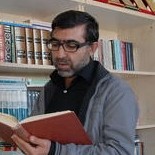
Assistant Editor

Editorial Board


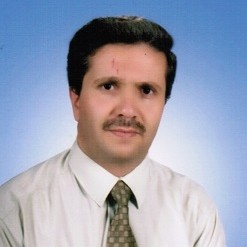


Field Editors


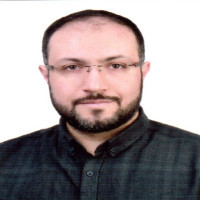


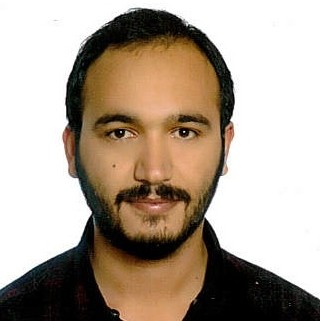
Manuscript Editors



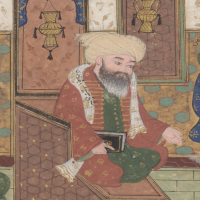


English Language Editor

Index Editor

UMDE Dini Tetkikler Dergisi is licensed under a Creative Commons Attribution-NonCommercial 4.0 International License (CC BY NC).










